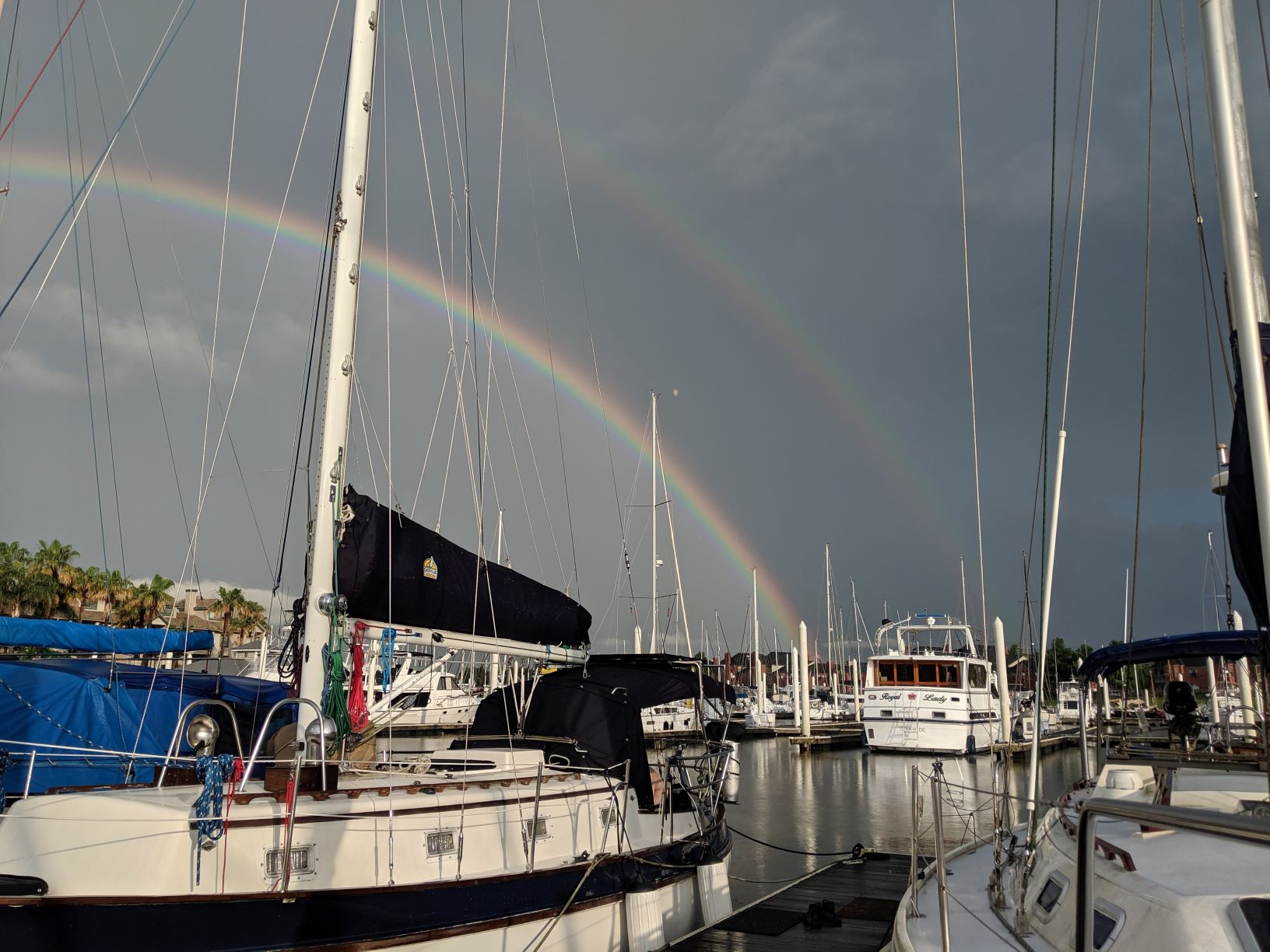Growing up in Oklahoma meant that each spring I would be on the lookout for thunderstorms which might bring tornadoes. We would listen for the sirens and either head to the front porch to look around or head to a safe place and hunker down. Upon moving to Colorado, we would watch the weather hoping that a snow storm would come and dump inches of fresh powder for skiing. Now, here in the Gulf of Texas, we watch the Gulf or the Atlantic Ocean for the formation of Tropical Disturbances which could turn into Tropical Storms or perhaps even Hurricanes.

Hurricanes typically form over warm tropical waters, which are between 8 and 20 degrees latitude. They like high humidity, light winds and warm sea temperatures. This makes hurricane season typically run from June to November. If you want to carry insurance on your boat, they require that you have a “hurricane plan” in place to make sure that you have done your part to protect your vessel. During these months, cruisers will typically get to a safe haven for the season at a marina, keep cruising with an eye on the weather and take their chances with having safe havens along their routes or by getting out of these latitudes all together.

Once hurricane season is upon us, we start checking the hurricane forecasts and watching the radar for possible problem spots. Since we don’t have “typical” tv access, we utilize the web and phone apps for our data. One of my favorite websites is NOAA’s National Hurricane Center which provides a general forecast, tracking and expectations for wind, waves and flooding. For more specific radar for my area, again I like NOAA or the Radar Scope and My Radar apps on my android. Since we are also on a boat, we like to use Predict Wind or Windy on the web and/or phone to get more specific details on wave height, wind speed and wind direction. If we lose power, internet or cell service, we also have a weather channel on our VHF radio. These greatly impact us on the water and can help us make decisions on how to better prep our boat for weather.

Justin and I are always discussing what we will do to prepare for a storm. We are constantly talking about the best methods for getting Nymeria ready for whatever may come. We are also making decisions on whether or not to stay on board the boat, go to a friend’s house nearby or completely evacuate to family out of state. Of course this all depends on the type and severity of the storm and where it decides to make landfall. I think that hurricane preparation is another whole blog post in and of itself, so for now, I will just watch the weather.






One Comment
Comments are closed.